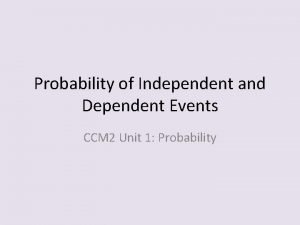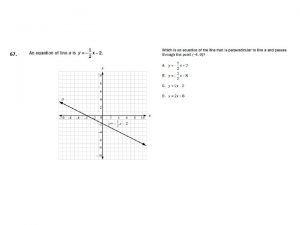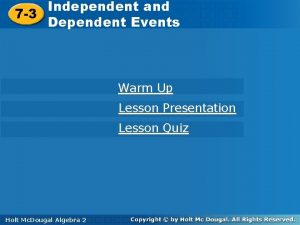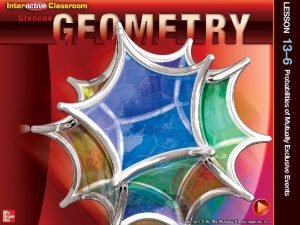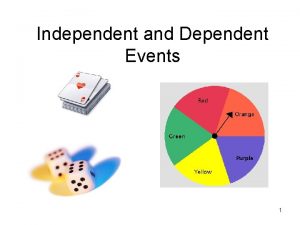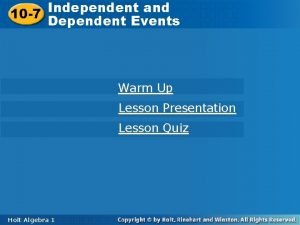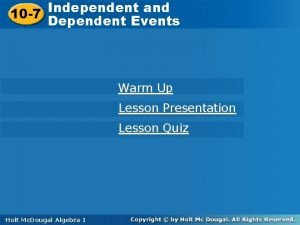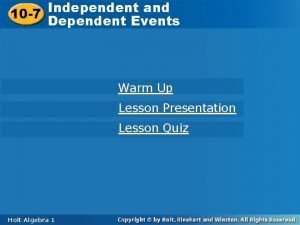7 10 5 Independent and Dependent Events Independent






- Slides: 6

7. 10. 5 Independent and Dependent Events

Independent Events • Compound events can be independent or dependent on each other. • Independent Events – One event happening does NOT affect the chance that the other events will happen. Note: The probability of independent events happening is the product of the probability of the individual events. P(A and B) = P(A) · P(B) Example: The outcome of spinning a spinner does NOT affect the flipping of a coin. If a spinner is numbered 1 -5 and a coin has 2 sides, the probability of spinning a prime number and flipping tails is as follows… P(prime) = 3/5 P(tails) = 1/2 3/5 · 1/2 = 3/10 The probability is 3/10, or 30%

Dependent Events • Dependent Events – One event happening DOES affect the chance that the other events will happen. Note: The probability of dependent events is the probability of the first event multiplied by the probability of the second event after the first event happens. P(A and B) = P(A) · P(B after A) Example: This formula is typically used when selecting from the sample space, like audience members, or a bag of M&Ms. For example, if 5 of your relatives and 6 of your friends are in an audience of 100 people at a game show, what is the probability one of your relatives is chosen first, and one of your friends is chosen second? P(relative) = 5/100 = 1/20 P(friend) = 6/99 = 2/33 P(relative and friend) = 1/20 · 2/33 = 2/660 = 1/330 The probability is about. 3%

What about NOT being Chosen? What is the probability that you, your relatives, and your friends are NOT chosen to be either of the first two contestants? 1 + 5 + 6 = 12 100 – 12 = 88 P(first selection) = 88/100 = 44/50 P(second selection) = 87/99 = 29/33 P(first selection and second selection) = 44/50 · 29/33 = 1276/1650 = 638/825 = 58/75 =. 773 The probability is about 77. 3%

Probability of a Compound Event What is the probability that you’ll get three multiple choice questions (A-E) right that you guess at on a quiz? Note: Guessing at one question does not affect the other questions. Therefore, the events are independent. Use the following formula: P(Questions #1, #2, and #3 correct) = P(Question#1 correct) · P(Question #2 correct) · P(Question #3 correct) 1/5 · 1/5 = 1/125 The probability is. 8% NOTE: You can use the fundamental counting principal as well: 1· 1· 1=1 5 · 5 = 125 1/125

Homework • Pg. 433 #3, 4, 7, 8, 9, 11, 12, 13, 14, 18, 20, 22
